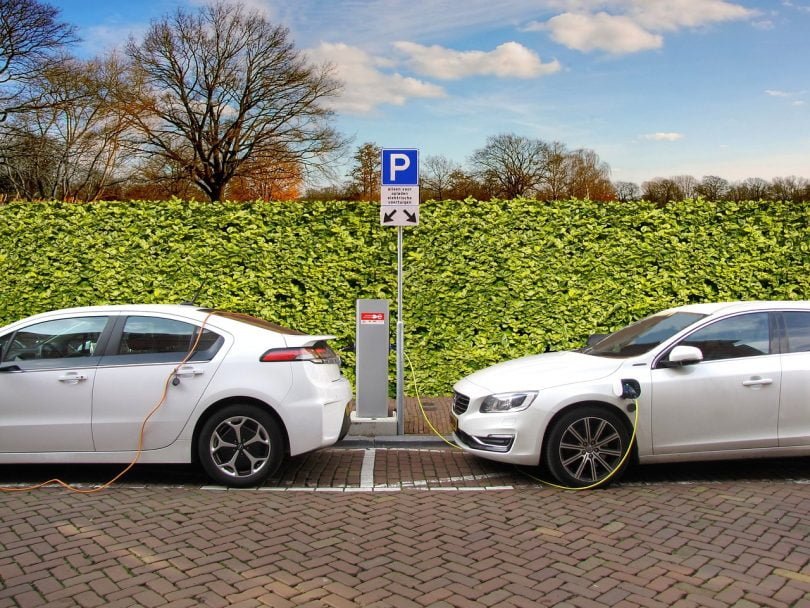It’s one of the biggest purchases you’ll make, so it’s little wonder that buying a new car can be quite a stressful experience even under the best of circumstances – make the wrong choice and it can be a costly mistake. So when it comes time to purchase a new family vehicle and find a car which suits your personality, you may be better off thinking long term and considering going electric. With the tax tariffs against fossil fuel only set to rise, it seems like there will be more support given to the national infrastructure for electric cars. Making the switch, however, is something which can be daunting. You might have concerns about maintenance, charging, adapting to a new technology and performance. The technology around electric vehicles is changing all the time, and what you may have understood to be true just a couple of years ago might now have moved on considerably. We think of electric cars as a very modern innovation, but they’ve actually been around since the 1920s. Over recent years, more and more prominence has been placed on making the switch by governments and manufacturers globally. And as we all become more aware of doing our bit to safeguard the environment, so the prospect becomes more attractive to drivers themselves. Battery technology and infrastructure have come a very long way in the last few years, and electric motoring is finally becoming a truly viable alternative for the average person. As more car marques begin to offer full electric or hybrid options, this trend is only set to increase. So, what do you need to know if you’ve decided to make the switch?
Decide Your Type
All electric cars are not created equal, so the first thing to understand is that there are several different types of vehicle that fall under this title. Plug in hybrid vehicles (PHEVs) and other hybrids are not true electric cars – while they contain a rechargeable battery, they also have normal petrol or diesel engines as well. A true electric (EV) runs on battery power alone.
Understand The Drive
Driving an EV is a very different experience from what you may be used to. While the motor generates force just like in a fuelled car, EVs do not use gears in the traditional sense – they just have adjustable current which makes the motor turn faster or slower as required. There’s no gear and no clutch pedal, just an accelerator and a brake. They also use what is known as regenerative braking – when you push down on the break, the forward momentum of the vehicle puts charge back into the battery. With no clutch and instant power, pulling away is very speedy and many people are surprised at the smoothness of the ride. The other thing that can be a little odd is the lack of engine noise. This can take a little getting used to, as ambient and road noise will seem louder by comparison.
Financing Your Car
When considering the purchase of an EV, it’s vital to think through the financing carefully, as you would with any new car purchase – it’s a major outlay, so the decision has to be right for you. Consider what financing packages and subsidies there are available. Trade in your old car for maximum profit by reselling to a specialist dealership like Beck Evans to make sure you have a healthy deposit available. Also consider the running costs of your new EV. They vary from model to model, but broadly speaking, the cost of a charge to last 100 miles would be around £4, compared to £15 for the same distance in a conventional car. Other savings come from not paying road tax (although you will still need to register and submit details annually) and avoid congestion charges, from which electric vehicles are exempt. At present, EVs are still a little more expensive than petrol and diesel models, but this is going down as their popularity grows and new models launch. Some companies now offer battery lease plans where you buy the car but hire the battery, which can also save thousands of pounds – Nissan and Renault are some of the marques which offer this. The slight drawback is that EVs depreciate quicker than other cars, due to the battery life decreasing over time, but as leasing and replacement options become more commonplace, this will become less of an issue. Wear and tear is less than a non-electric car, due to the fact that there are less moving parts, so it does balance out a bit.
Matching Your Lifestyle
The simple fact of the matter is that although EVs offer a huge amount of benefits, there are still definitely some issues with owning one, although these are rapidly resolving themselves. For most people, owning an EV is an idea that works very well. However, if your lifestyle means that you do lots of long journeys or many unpredictable ones then a hybrid is likely to be a better option for you at present. People who do short, regular journeys can definitely look into true EVs. The model that suits you and your lifestyle won’t necessarily be the one you may think or the one your colleague has, so do your research into the best electric cars and find the one which fits your unique lifestyle.









